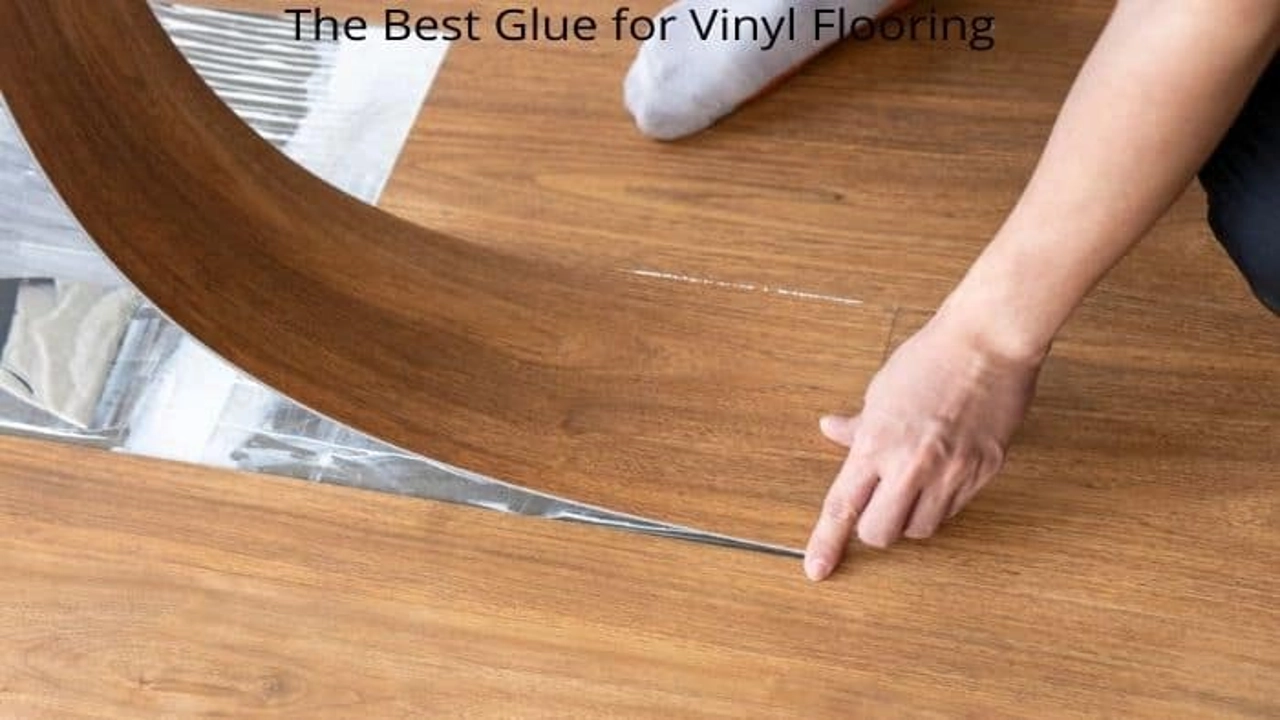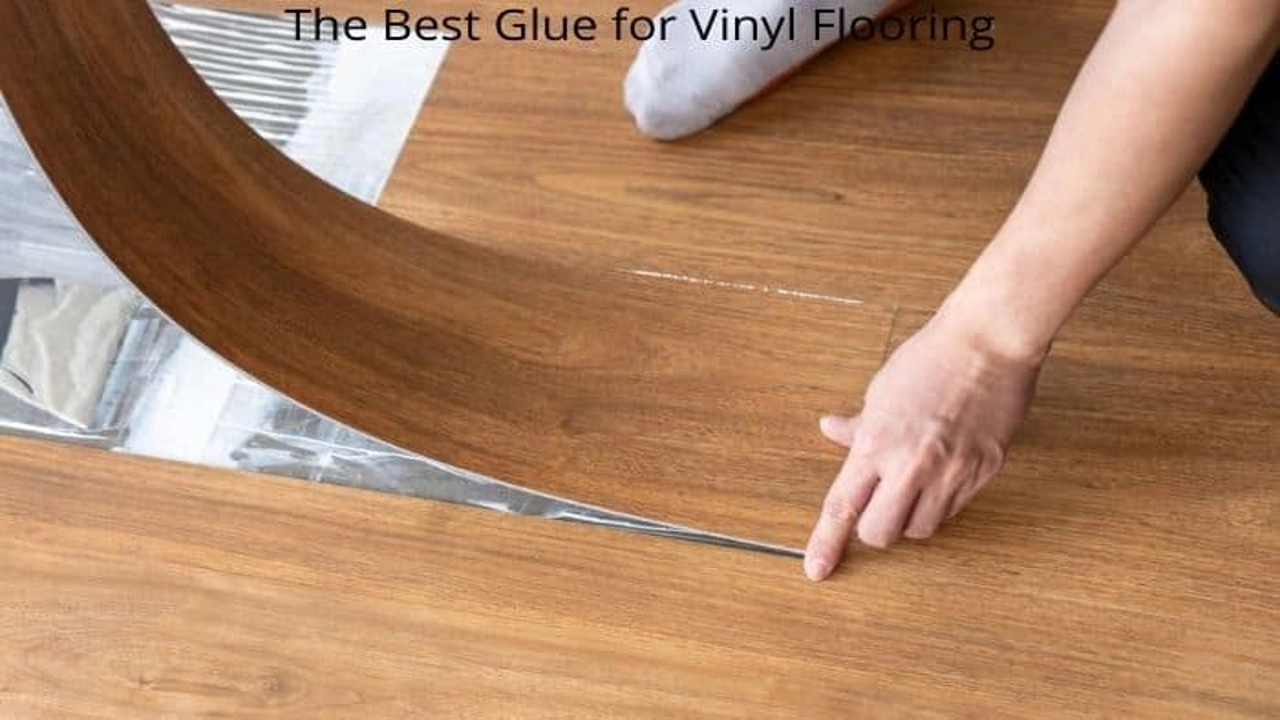Best glue for vinyl flooring selection depends on your specific flooring type and subfloor. Consider factors like moisture resistance and the level of adhesion needed for a long-lasting installation. Read product labels carefully; you’ll find crucial information about application and drying times.
Different glues work better with different vinyl types. Choose a glue specifically designed for vinyl flooring to ensure proper bonding and prevent future issues like lifting or peeling. Compare various products and read customer reviews to make an informed decision. You want a strong, durable bond.
Choosing the Best Glue for Vinyl Flooring: A Complete Guide to Strong, Smooth, and Lasting Results

When it comes to installing vinyl flooring, one of the most crucial decisions you’ll make is selecting the best glue for vinyl flooring. The right adhesive can significantly impact the durability and appearance of your flooring. But with so many options available, how do you know which one is the best for your project? In this blog post, we will explore some of the top adhesives for vinyl flooring, their features, pros, and cons, to help you make an informed decision.
Factors to Consider When Choosing Glue
Beyond the adhesive type, several other factors play a role in selecting the perfect glue for your project:
Subfloor Condition: Your subfloor must be clean, dry, and level. An uneven or damp subfloor will compromise the bond, regardless of the glue you choose. Proper subfloor preparation is as important as choosing the best glue for vinyl flooring.
Traffic Level: High-traffic areas need a stronger, more durable adhesive than low-traffic areas. Consider the amount of foot traffic your flooring will endure when making your selection.
Climate: Extreme temperatures and humidity can affect the performance of certain adhesives. Choose an adhesive designed for your local climate to ensure lasting results. Choosing the best glue for vinyl flooring in a humid climate, for example, requires careful consideration of the adhesive’s resistance to moisture.
Ventilation: Adequate ventilation is essential, especially when working with solvent-based adhesives. Ensure you have proper ventilation during and after installation.
1. Roberts 7350 Vinyl Flooring Adhesive
Roberts 7350 is a popular choice among DIY enthusiasts and professionals alike. This pressure-sensitive adhesive is designed for vinyl flooring and provides a strong bond while allowing for easy repositioning during installation.
Features:
- Pressure-sensitive formula
- Excellent moisture resistance
- Low VOC content
- Easy cleanup with water
Pros:
- Strong initial tack
- Allows for repositioning
- Suitable for various vinyl types
Cons:
- May require longer drying time
- Not ideal for high-moisture areas
2. Henry 12185 Vinyl Flooring Adhesive
Henry 12185 is a wet-set adhesive that offers a strong bond for vinyl flooring. It is ideal for both residential and commercial applications, providing excellent durability and performance.
Features:
- Wet-set formula
- High shear strength
- Suitable for heavy traffic areas
- Quick drying time
Pros:
- Strong bond for heavy traffic
- Quick drying
- Versatile for different flooring types
Cons:
- Requires precise application
- Longer curing time before full strength
3. Bostik’s Best Adhesive
Bostik’s Best is a premium adhesive known for its exceptional performance and versatility. It is suitable for various flooring types, including vinyl, and is designed for both residential and commercial use.
Features:
- High-performance formula
- Excellent moisture resistance
- Low odor and VOCs
- Easy to spread
Pros:
- Superior bond strength
- Versatile for multiple flooring types
- Low environmental impact
Cons:
- Higher price point
- Requires careful application
Q&A: Choosing the Best Glue for Vinyl Flooring
Q1: What types of glue work best for vinyl flooring?
A1: Construction adhesives specifically designed for vinyl flooring provide the strongest and most reliable bond. Look for labels clearly stating their suitability for this purpose.
Q2: Is there a difference between glue for sheet vinyl and glue for vinyl planks?
A2: Yes. Sheet vinyl often requires a full-spread adhesive for complete coverage, while vinyl planks frequently use a smaller amount of adhesive applied only to the plank. Always check the manufacturer’s recommendations for your specific flooring.
Q3: How important is good surface preparation before gluing vinyl flooring?
A3: Proper surface preparation is crucial. A clean, dry, and level subfloor ensures the glue adheres correctly and prevents problems like lifting or bubbling.
Q4: Can I use regular wood glue for my vinyl floor?
A4: No. Wood glue is not formulated for the stresses and flexibility vinyl flooring experiences. Use a vinyl flooring adhesive for the best results and to prevent the floor from failing prematurely.
Q5: What should I do if I accidentally use too much glue?
A5: Immediately remove the excess glue with a damp cloth or scraper before it sets. Let the area dry thoroughly before continuing.
Q6: My vinyl floor is lifting in places. Can glue fix this?
A6: Sometimes. If the lift is minor, you might be able to carefully lift the flooring, clean the area, apply new adhesive, and press it back down firmly. For larger areas, professional help is recommended.
Q7: How long should I wait before walking on my newly glued vinyl floor?
A7: Follow the glue manufacturer’s instructions precisely regarding drying and curing time. This varies depending on the glue type and environmental conditions.
Q8: Does the type of subfloor matter when choosing glue?
A8: Yes. The adhesive’s suitability depends on your subfloor material (concrete, plywood, etc.). Check the product label for compatibility.
Conclusion
Choosing the right adhesive is crucial for a long-lasting, beautiful vinyl floor. We explored several popular options, highlighting their strengths and weaknesses. Remember to carefully consider the type of vinyl you’re using and the substrate beneath it before making your selection. Matching the adhesive to your specific needs ensures a successful installation, preventing future issues like bubbling or lifting. Proper preparation is just as important; a clean, dry surface is your best friend.





